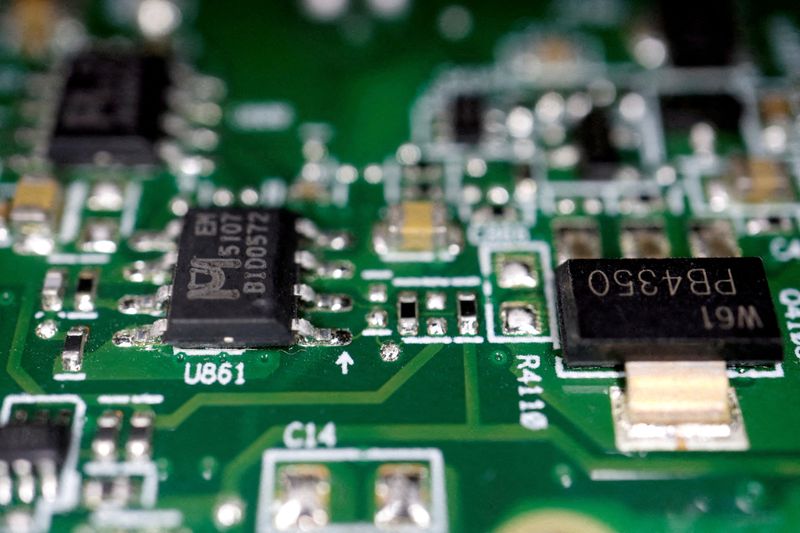By Francesco Guarascio
HANOI (Reuters) - Foreign companies are expanding capacity in Vietnam for testing and packaging chips while domestic firms are eyeing investments, as a shifting of industrial activity away from China gathers pace due to trade tensions with the West, executives said.
The semiconductor back-end manufacturing sector, which is less capital-intensive than more strategic front-end chipmaking in foundries, is currently dominated by China and Taiwan, but Vietnam is among the fastest-growing countries in the $95 billion segment.
Hana Micron (NASDAQ:MU)'s vice president for Vietnam, Cho Hyung Rae, told Reuters the company was expanding in the Southeast Asian country to meet requests from industrial clients who wanted to have some production capacity moved away from China.
The South Korean company is investing about 1.3 trillion won ($930.49 million) until 2026 to boost packaging operations for legacy memory chips, a company official based in South Korea said.
U.S.-headquartered Amkor Technology (NASDAQ:AMKR) announced last year a $1.6 billion plan to build a 200,000 square metre (2.2 million sq. ft) factory which it said would become its most extensive and advanced facility, "delivering next-generation semiconductor packaging capabilities."
A business executive with direct knowledge of Amkor's operation in Vietnam said some of the equipment installed in the new plant had been transferred from factories in China.
Amkor did not reply to requests for comment about the transfer of machinery.
Intel (NASDAQ:INTC), which had a large booth last week at Vietnam's first international semiconductors exhibition near Hanoi, has in the country its largest chips back-end factory in its global network.
DOMESTIC PLAYERS
Vietnam's growth in the back-end segment of the chips industry has been encouraged by the Biden administration amid growing trade tensions between Washington and Beijing, which may further escalate with the second presidency of Donald Trump.
Thanks largely to the investments from foreign companies, Vietnam is expected to have by 2032 an 8% to 9% share of global capacity in chip assembling, testing and packaging (ATP), from just 1% in 2022, according to a report published in May by the U.S. Semiconductor Industry Association and Boston Consulting Group.
Local companies are also expected to contribute to the sector's forecast growth.
Vietnam tech firm FPT is building a testing factory close to Hanoi, according to three corporate sources, who declined to be named because the information was not public.
One source from the company said the 1,000-square-metres plant is expected to start operations early next year with 10 testing machines, to be tripled by 2026, for an investment of up to $30 million. It is still, however, seeking strategic partners.
FPT did not reply to a request for comment.
Vietnamese investment firm Sovico Group is also looking for a foreign partner to co-invest in an ATP facility in Danang, a coastal city in central Vietnam, said Le Dang Dung, a senior adviser to Sovico.
Vietnam is also aiming to become a player in front-end chipmaking.

Viettel, a state-owned defence and telecoms company, plans to build Vietnam's first foundry, two company sources said, to meet the government's ambitious goal of having at least one fab online by 2030.
The company did not reply to a request for comment.